Pakistan's ‘sectarian bill’ could exacerbate violence against minority Shias
By Sana Batool
Muslim-majority Pakistan is currently grappling with a complex issue that strikes at the heart of its socio-religious fabric: the fragile balance between religious sensitivities, minority rights, and freedom of expression.
The passage of the "Criminal Laws (Amendment) Bill 2023" earlier this week in the Pakistani Senate, which is aimed at enhancing penalties for disrespect to sacred religious personalities, has sparked a robust debate both within the country and outside, fueling fears among minorities.
Social media has been abuzz in recent days with campaigns against the passing of the controversial bill that reveals a profound concern – the potential impact of this bill on the minority Shia community.
To understand the impact and implications of this bill, it's crucial to delve into the context and the historical background that has led to its formulation.
Pakistan, a country known for its diverse religious landscape, has seen simmering tensions and violence stemming from differing religious beliefs over the years.
Actions deemed “blasphemous” have often provoked rage, leading to events of mob violence, targeted killings and unjust arrests.
While the incumbent government seeks to address concerns about the exploitation of religious sentiments, the passage of this bill has raised questions about the impact on freedom of expression and the rights of minority religious communities in the Muslim-majority country.
Protecting religious sentiments?
The bill's advocates contend that the amendment is needed to curb hate speech and acts of blasphemy against revered Islamic figures, such as the family of Prophet Mohammad (PBUH) and his companions.
The intention is to protect religious sensitivities and ensure harmony among Pakistan's diverse religious groups. However, critics fear that such legislation could be misused and abused to target members of the Shia community and further divide Pakistani society on sectarian lines.
The issue, as experts and activists explain, is twofold. First, there is a long history of blasphemy laws used to settle personal scores, muzzle dissent, and oppress religious minorities in Pakistan, they opine.
There have been multiple cases where unsubstantiated allegations have resulted in violence, mob justice, and the imprisonment of innocent people. The passage of this bill without adequate and effective safeguards against abuse raises questions about responsibility and justice, experts say.
Secondly, the bill's focus on particular religious figures inadvertently amplifies the disparity between beliefs, according to activists and critics of the bill.
Plight of persecuted Shias
While Pakistan's religious landscape embraces diversity, encompassing Christians, Hindus, Sikhs, Ahmadis, and others, the plight of the long-persecuted Shia community is particularly pronounced.
Confronted by relentless persecution at the hands of extremist Takfiri groups, the community finds itself in the crosshairs of this bill's potential impact. The risk of the bill becoming an additional tool of discrimination against the Shia community becomes even more apparent, according to activists.
A few years ago, Pakistan witnessed a spree of arrests targeting members of the Shia community over the recitation of Ziarat-e-Ashura (a supplication recited mostly during the month of Muharram) during a Muharram procession, which sent ripples of shock and anger across the country.
It underscored a deeply unsettling trend of religious discrimination and intolerance in the country.
Misuse and abuse of laws
The incidents not only highlighted the vulnerability of the Shia community but also raised questions about the protection of religious freedoms and the potential misuse of laws to curtail minority practices.
Such instances, activists campaigning against this bill say, serve as a stark reminder of the need for a comprehensive and inclusive approach to safeguarding the rights of all religious groups in the country.
This particular bill, which comes with amends to the Pakistan Penal Code 1860 and the Code of Criminal Procedure 1898, is feared to create an environment in which some groups are denied legal protection.
Historical incidents serve as warnings. The assassination of senior political leaders Salman Taseer and Shahbaz Bhatti, both of whom spoke out publicly against blasphemy laws, highlights the risks of campaigning for reform.
The horrific story of Mashal Khan, a young student who was lynched by a mob on blasphemy charges, also emphasizes the importance of rectifying the misuse of these laws.
Opponents of the latest bill argue that increasing penalties for blasphemy will not alleviate the problem but will instead lead to increased violence and discrimination in the country.
Social media abuzz
On Thursday, activists belonging to religious minority groups took to social media to record a campaign against the passing of the bill deeming it an attempt to marginalize the already marginalized and persecuted groups.
In Kohat, a Shia student narrowly escaped frm mob lynching on blasphemy accusation. In Isb, a Shia student was assaulted & sent to jail. In Peshawar, students accused a teacher & caused havoc. Instead of reforming law, Senate decides to enhance punishment!! #SectarianBillRejected
— Asad Gokal (@asadgokal) August 9, 2023
Numerous voices from various backgrounds including civil society members are expressing reservations about the potential consequences of the bill on minority rights, sectarian tensions, and freedom of expression in the Muslim-majority country.
Twitter users have taken to the platform to voice their apprehensions about the bill's impact, drawing attention to historical incidents of violence that stemmed from the misuse of blasphemy laws.
These incidents include targeted killings, mob violence, and unjust prosecutions that have resulted in dire consequences for individuals accused of blasphemy.
Civil Society of Pak rejects the recently passed bill and calls it an attempt to instigate sectarianism. Rep of National Commission for Human Rights, Women Action Forum, Women Democratic Front, Aurat Foundation, Aurat March, SHRDN and others protested. #SectarianBillRejected pic.twitter.com/GTb6VUMj7K
— Asad Gokal (@asadgokal) August 9, 2023
One of the key concerns highlighted by social media users is the escalation of sectarian tensions and the potential targeting of minority communities.
Human rights activists warn that the bill's passage could further exacerbate these tensions and contribute to an environment of fear and discrimination for religious and sectarian minorities.
Prominent women senators, Sherry Rehman and Anny Marri, have also opposed amendments to Pakistan's blasphemy laws. Their concerns resonate with the potential harm these changes could inflict on the country's minorities, especially the Shias.
Critics of the bill are also questioning the absence of consequences for false accusations made under the bill, which also raises concerns about the potential misuse of the legislation for personal vendettas.
Sana Batool is a Pakistan-based journalist and researcher who has written extensively on the subject of Takfirism in Pakistan and anti-Shia violence.
(The views expressed in this article do not necessarily reflect those of Press TV.)
No imminent threat, just Israeli agenda: US senators push back on war on Iran
Handala hacking group breaches Israel’s so-called national security institute
IRGC Ground Force launches 3 major operations in response to Israeli-US aggression
'Powerful strike': IRGC hits US destroyer with ballistic, strategic cruise missiles in Indian Ocean
IRGC: 16th wave of retaliation hit heart of occupied territories; enemy casualties stand at 680
We avenge the innocent until our last breath: Iran's parl. speaker
170 students, teachers martyred in ‘deliberate’ strikes on Iranian schools: Minister
Iran’s air defense systems down six advanced Hermes drones


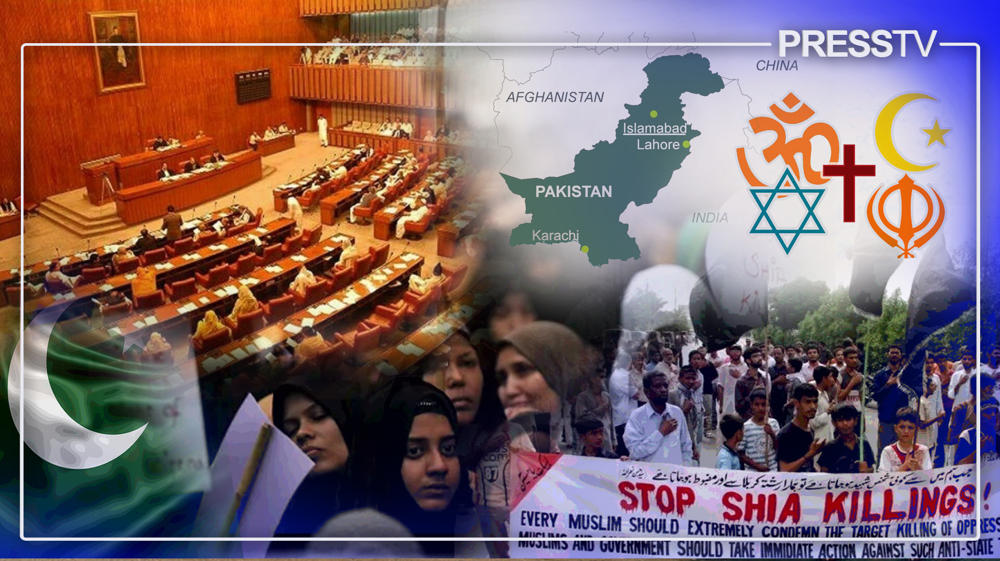






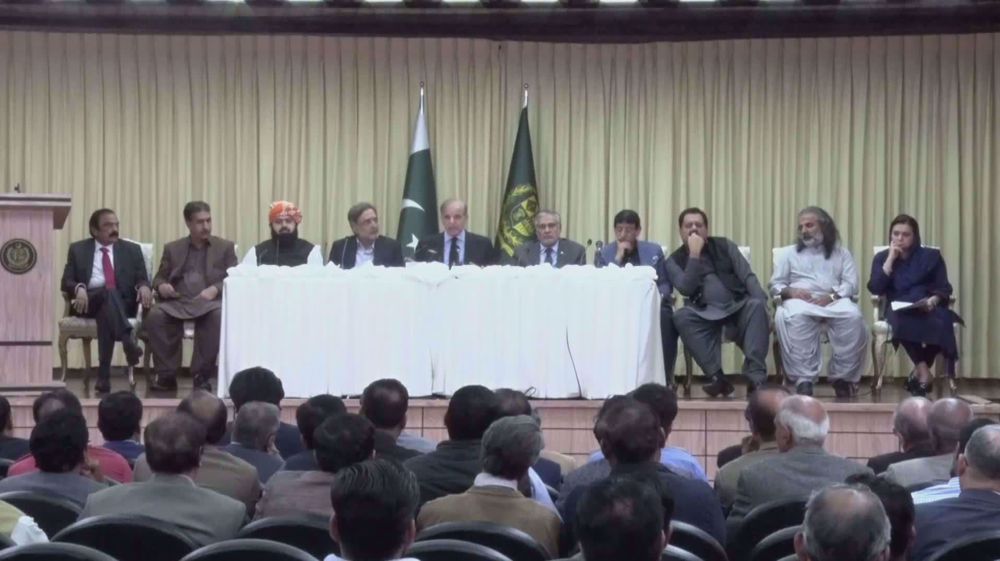
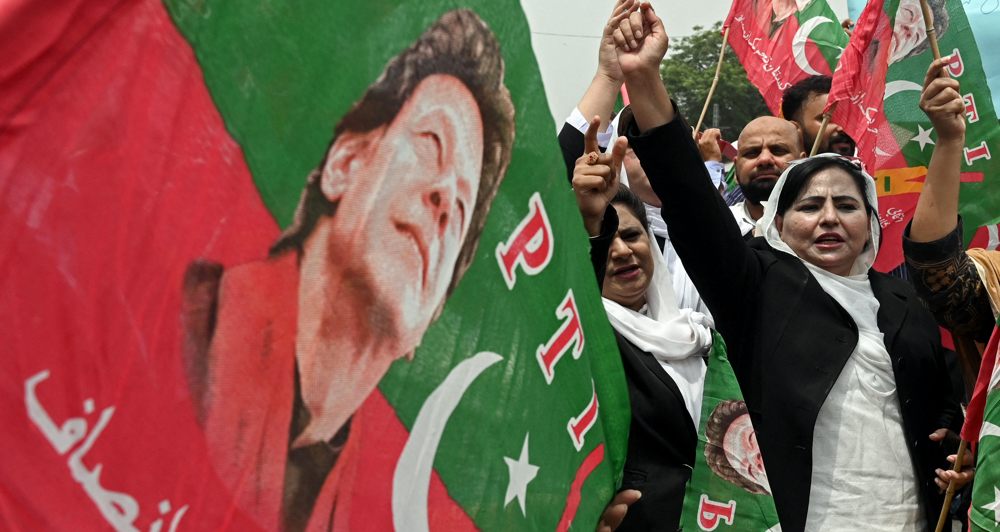
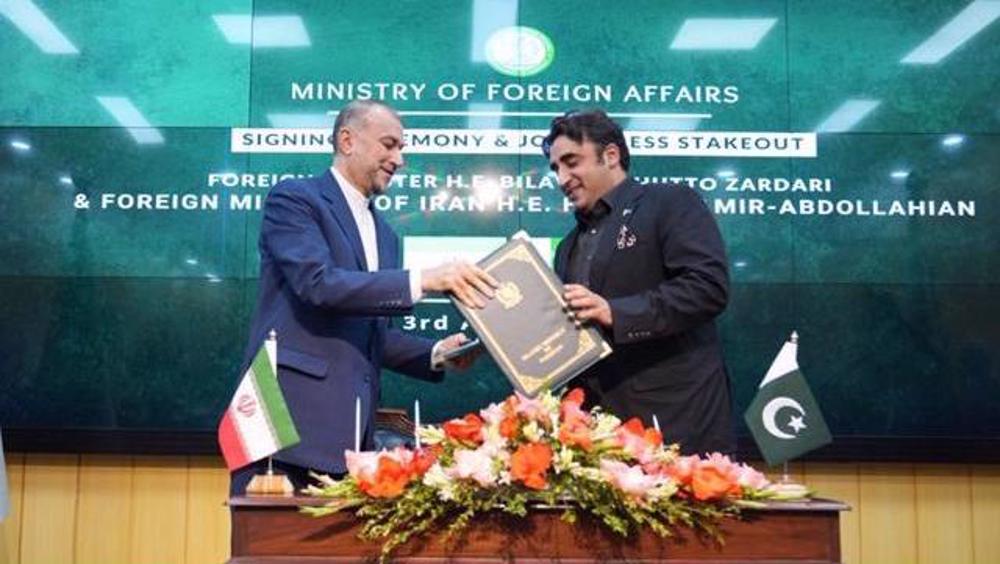
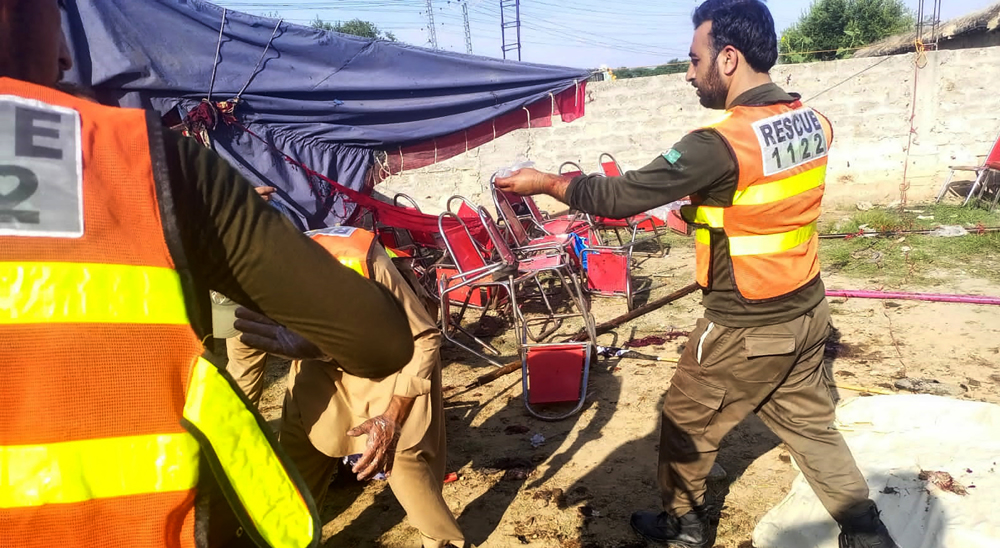


 This makes it easy to access the Press TV website
This makes it easy to access the Press TV website